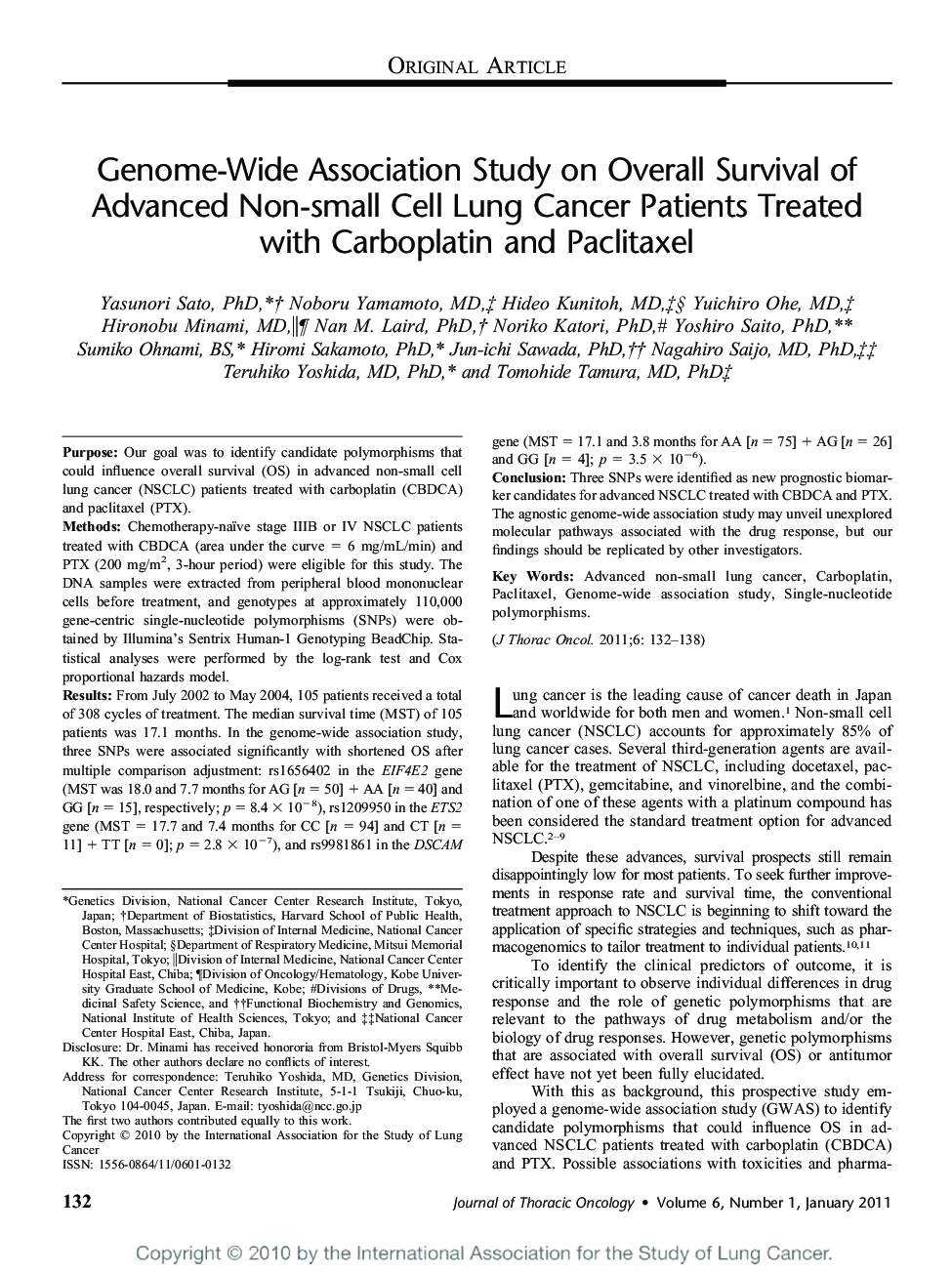| Article ID | Journal | Published Year | Pages | File Type |
|---|---|---|---|---|
| 3990180 | Journal of Thoracic Oncology | 2011 | 7 Pages |
Purpose:Our goal was to identify candidate polymorphisms that could influence overall survival (OS) in advanced non-small cell lung cancer (NSCLC) patients treated with carboplatin (CBDCA) and paclitaxel (PTX).Methods:Chemotherapy-naïve stage IIIB or IV NSCLC patients treated with CBDCA (area under the curve = 6 mg/mL/min) and PTX (200 mg/m2, 3-hour period) were eligible for this study. The DNA samples were extracted from peripheral blood mononuclear cells before treatment, and genotypes at approximately 110,000 gene-centric single-nucleotide polymorphisms (SNPs) were obtained by Illumina's Sentrix Human-1 Genotyping BeadChip. Statistical analyses were performed by the log-rank test and Cox proportional hazards model.Results:From July 2002 to May 2004, 105 patients received a total of 308 cycles of treatment. The median survival time (MST) of 105 patients was 17.1 months. In the genome-wide association study, three SNPs were associated significantly with shortened OS after multiple comparison adjustment: rs1656402 in the EIF4E2 gene (MST was 18.0 and 7.7 months for AG [n = 50] + AA [n = 40] and GG [n = 15], respectively; p = 8.4 × 10−8), rs1209950 in the ETS2 gene (MST = 17.7 and 7.4 months for CC [n = 94] and CT [n = 11] + TT [n = 0]; p = 2.8 × 10−7), and rs9981861 in the DSCAM gene (MST = 17.1 and 3.8 months for AA [n = 75] + AG [n = 26] and GG [n = 4]; p = 3.5 × 10−6).Conclusion:Three SNPs were identified as new prognostic biomarker candidates for advanced NSCLC treated with CBDCA and PTX. The agnostic genome-wide association study may unveil unexplored molecular pathways associated with the drug response, but our findings should be replicated by other investigators.
